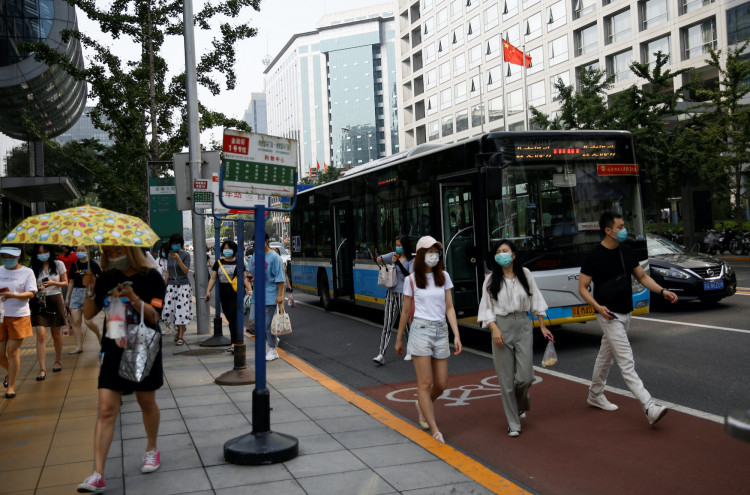China's consumer prices declined for a second consecutive month in March, underscoring growing deflationary pressures as the world's second-largest economy faces renewed external risks from escalating trade tensions with the United States.
The consumer price index (CPI) slipped 0.1% year-over-year in March, according to the National Bureau of Statistics on Thursday. While the decline was milder than February's 0.7% contraction, it fell short of the flat reading economists had forecast in a Reuters poll. On a monthly basis, CPI fell 0.4%, compared to a 0.2% drop in February.
Core inflation, which strips out volatile food and energy prices, rose 0.5% from a year earlier-rebounding from a 0.1% decline in June. Producer prices, however, fell more steeply, with the producer price index (PPI) dropping 2.5% year-over-year, the largest contraction since November 2024 and the 29th straight month of producer deflation. Economists had expected a 2.3% decline.
The weak inflation data adds to the challenges facing Beijing as it pursues a GDP growth target of "around 5%" in 2025. Consumption is increasingly central to that effort, as exports-historically a key engine of growth-are expected to deliver negative contributions amid heightened global trade friction.
"We expect fiscal policies to lead domestic demand expansion amid external shocks," Citi economists wrote in a note. They project additional stimulus funding between 1 trillion yuan ($136 billion) and 1.5 trillion yuan by mid-year, suggesting expanded trade-in subsidies, childcare support, and low-income assistance are under consideration.
In March, Chinese policymakers doubled the budget for their consumer trade-in subsidy program to 300 billion yuan ($41.5 billion), up from last year's 150 billion yuan. The initiative now covers a broader range of goods, including mid-range smartphones and household appliances, and offers subsidies worth 15% to 20% of the purchase price.
The push for domestic demand comes as Beijing grapples with the economic impact of a worsening trade conflict with Washington. President Donald Trump this week hiked tariffs on Chinese goods to 125%, up from 104%, prompting a swift retaliation from Beijing, which imposed an 84% tariff on U.S. imports. The yuan weakened to 7.35 against the dollar following the announcement.
Premier Li Qiang recently underscored the urgency of spurring consumption, citing it as the government's top priority in his annual work report. "Consumption" appeared 27 times in the report-its highest frequency in a decade, according to Morgan Stanley's China equity strategist Laura Wang.





